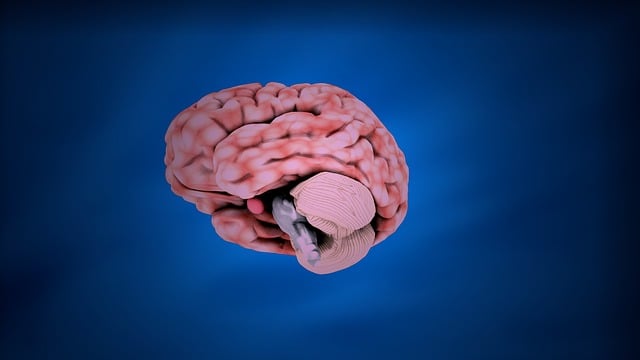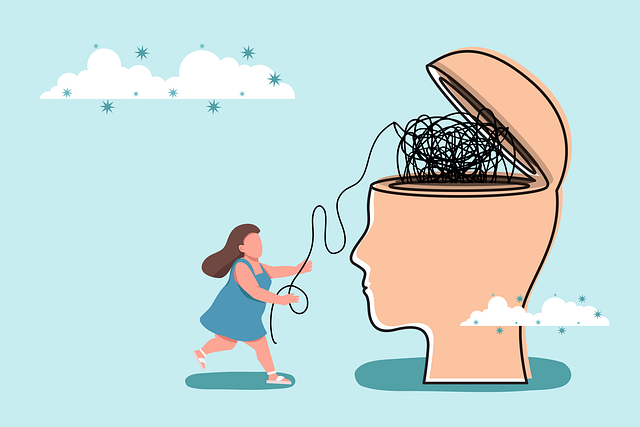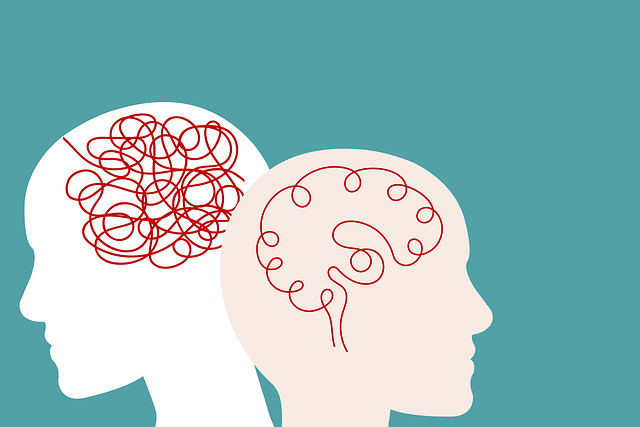Depression, a complex mental health condition marked by persistent low mood, lost interest, and physical/cognitive symptoms, is influenced by various triggers including chronic stress, life changes, trauma, or genetics. Boulder Gambling Therapy offers a pioneering approach to depression prevention by addressing the underlying causes of gambling addiction, linked to mental health concerns, through a multifaceted treatment involving journaling, exercise guidance, compassion cultivation, Mental Wellness Coaching, and custom podcast series. Adopting a healthy lifestyle with regular exercise, balanced diets, adequate sleep, and mindfulness practices further reduces stress and promotes long-term mental health maintenance. Building a strong support network through community outreach programs, support groups, and professional services like Boulder Gambling Therapy is crucial for effectively combating depression.
Depression is a common yet serious mental health condition, affecting millions globally. Understanding its triggers is key to prevention. This article explores a comprehensive guide to combating depression, featuring innovative strategies like Boulder Gambling Therapy – a unique approach targeting specific risk factors. We delve into lifestyle changes for sustained mood management and highlight the importance of building a robust support network. Additionally, we emphasize seeking professional help as a crucial step in preventing and managing depression effectively.
- Understanding Depression and Its Triggers
- Boulder Gambling Therapy: A Unique Approach to Prevention
- Lifestyle Changes for Long-Term Mood Management
- Building a Support Network and Seeking Professional Help
Understanding Depression and Its Triggers

Depression is a complex mental health condition that can significantly impact an individual’s daily life and overall well-being. It’s crucial to understand that depression isn’t simply feeling sad; it’s a persistent low mood, loss of interest in activities once enjoyed, and a range of physical and cognitive symptoms. Triggers for depression vary from person to person, but certain factors like chronic stress, significant life changes, trauma, or genetic predisposition can play a role. In the context of Boulder Gambling Therapy, recognizing these triggers is essential as gambling addiction and depression often coexist.
Addressing depression effectively involves a multi-faceted approach. Mental wellness journaling, for instance, can help individuals track their emotions, identify patterns, and gain insights into their mental state. Exercise guidance tailored to individual needs can boost mood by releasing endorphins and promoting physical activity, which is beneficial for emotional well-being promotion techniques. Compassion cultivation practices have also shown promise in building resilience against depression by fostering self-kindness and understanding.
Boulder Gambling Therapy: A Unique Approach to Prevention

In the realm of depression prevention, Boulder Gambling Therapy stands out as a unique and innovative approach. This therapy focuses on addressing the root causes of gambling addiction, which is often linked to mental health issues like depression. By combining traditional therapeutic techniques with specialized strategies tailored for problem gamblers, this method offers a holistic solution for improving mental wellness. The goal is not just to curb gambling behaviors but to enhance overall life satisfaction and mood management skills.
Boulder Gambling Therapy incorporates various components such as Mental Wellness Coaching Programs and even the development of custom Mental Wellness Podcast Series. These tools empower individuals to take control of their thoughts and emotions, fostering a sense of self-awareness and resilience. Through these comprehensive programs, participants learn effective coping mechanisms, stress management techniques, and ways to build healthier relationships—all crucial elements for maintaining mental wellness in the long term.
Lifestyle Changes for Long-Term Mood Management

Adopting a healthy lifestyle is a powerful tool for long-term mood management and depression prevention. Simple yet effective changes can significantly impact mental well-being. Regular physical activity, for instance, boosts mood and reduces symptoms of depression by increasing brain chemicals like serotonin and norepinephrine. A balanced diet, rich in fruits, vegetables, whole grains, and lean proteins, ensures the body receives essential nutrients that support optimal brain function. Adequate sleep is crucial; establishing a consistent sleep routine can help regulate mood and reduce stress levels. Additionally, practicing mindfulness techniques like meditation or yoga has been shown to lower symptoms of depression and anxiety.
Boulder Gambling Therapy, while not directly related to lifestyle changes, offers specialized support for those dealing with gambling addiction, a risk factor for mental health issues. This therapy focuses on understanding the underlying causes of problematic gambling behaviors and provides tools for managing cravings and triggers. Incorporating stress reduction methods, such as deep breathing exercises or engaging in hobbies, further strengthens an individual’s ability to cope with life’s challenges. Public Awareness Campaigns Development can also play a vital role by educating communities about recognizing depression symptoms and promoting healthy coping strategies, fostering a culture of mental health literacy.
Building a Support Network and Seeking Professional Help

Building a strong support network is an integral part of depression prevention. Connecting with like-minded individuals who understand and can relate to your experiences can provide comfort, encouragement, and valuable perspectives. This could include joining support groups where members share their journeys and offer each other reassurance. Community outreach programs focused on emotional well-being promotion techniques can also be a great resource, fostering connections and teaching coping strategies. These initiatives often cater to various needs, ensuring individuals find the right kind of help for their specific circumstances.
Seeking professional help is another powerful tool in preventing and managing depression. Boulder Gambling Therapy, for instance, offers specialized services tailored to address gambling-related issues that may contribute to or exacerbate depression. Therapists provide guidance on self-esteem improvement, helping individuals challenge negative thought patterns and build resilience. By combining these support networks with professional care, individuals can gain the tools and mindset necessary to combat depression effectively.
In navigating the complex landscape of depression prevention, it’s clear that a multifaceted approach is key. From understanding individual triggers to adopting lifestyle changes and building supportive networks, these strategies empower individuals to take control of their mental well-being. Notably, Boulder Gambling Therapy emerges as a unique and innovative method, offering a specialized approach to prevention for those struggling with gambling-related issues. By combining these various tactics, folks can foster long-term mood management and find hope in overcoming depression.














